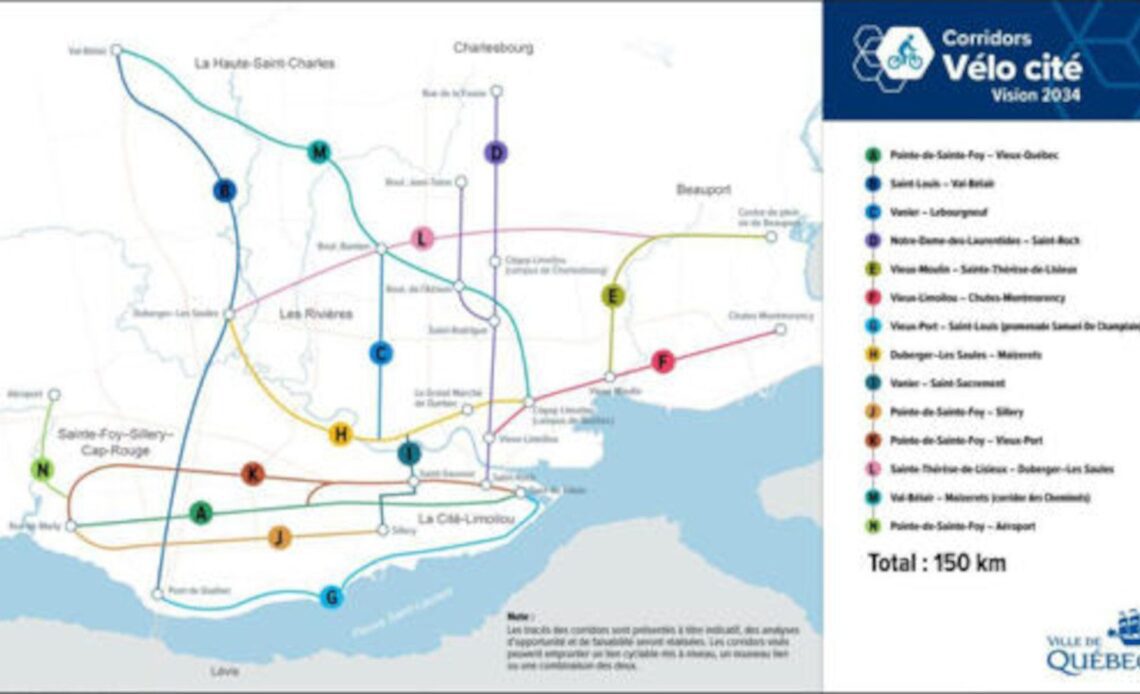Quebec City aims to construct a 150-km cycling corridor by 2034, connecting 85 per cent of the city’s neighborhoods. Mayor Bruno Marchand revealed the plan. It intends to complete 60 per cent within five years at a cost of $29 million. This initiative, dubbed Corridors Vélo cité (CVC), is seen as beneficial for the economy and environment amid urban growth and increasing commuter traffic.
Alternates to driving
“If we don’t find alternatives to help people commute how they want to, we are done for. That means people driving will spend more time in their car,” Marchand said to the CBC. “So the drivers who say when we announce a cycling project or active transport project that it’s not for them, they’re wrong. It is for them.”
Encourage more cycling
Magali Bebronne, programs director at Vélo Québec, said this initiative might inspire more residents to embrace cycling.
“So to have a vision that really allows for all the neighbourhoods to be connected is really a strong point of the plan,” she said. “It’s an ambitious plan. It’s really great to see.”
A ten year project
After the initial 90-kilometer network is built, the remaining 40 per cent of the cycling infrastructure will consist of more intricate projects. It is slated for completion by 2034.
Currently, many individuals opt for cars, even for trips within a five-kilometer radius.
Marchand said that It’s not about blaming drivers, rather, that it’s a plan to develop a city where people can comfortably choose to move around.
For all types of cyclists
Quebec City councillor and vice president of the executive committee, Pierre-Luc Lachance, emphasizes that the cycling network will cater to all types of cyclists.
“We’re focusing on people who go to the library. For children who will be able to go to school by bike,” Lachance said.
The specific sections to be developed in 2024 will be announced later by the municipal administration. However, it’s confirmed that the project will kick off with the corridor connecting Charlesbourg to downtown. Construction is scheduled in six phases from 2024 to 2026.
Click Here to Read the Full Original Article at Canadian Cycling Magazine…

